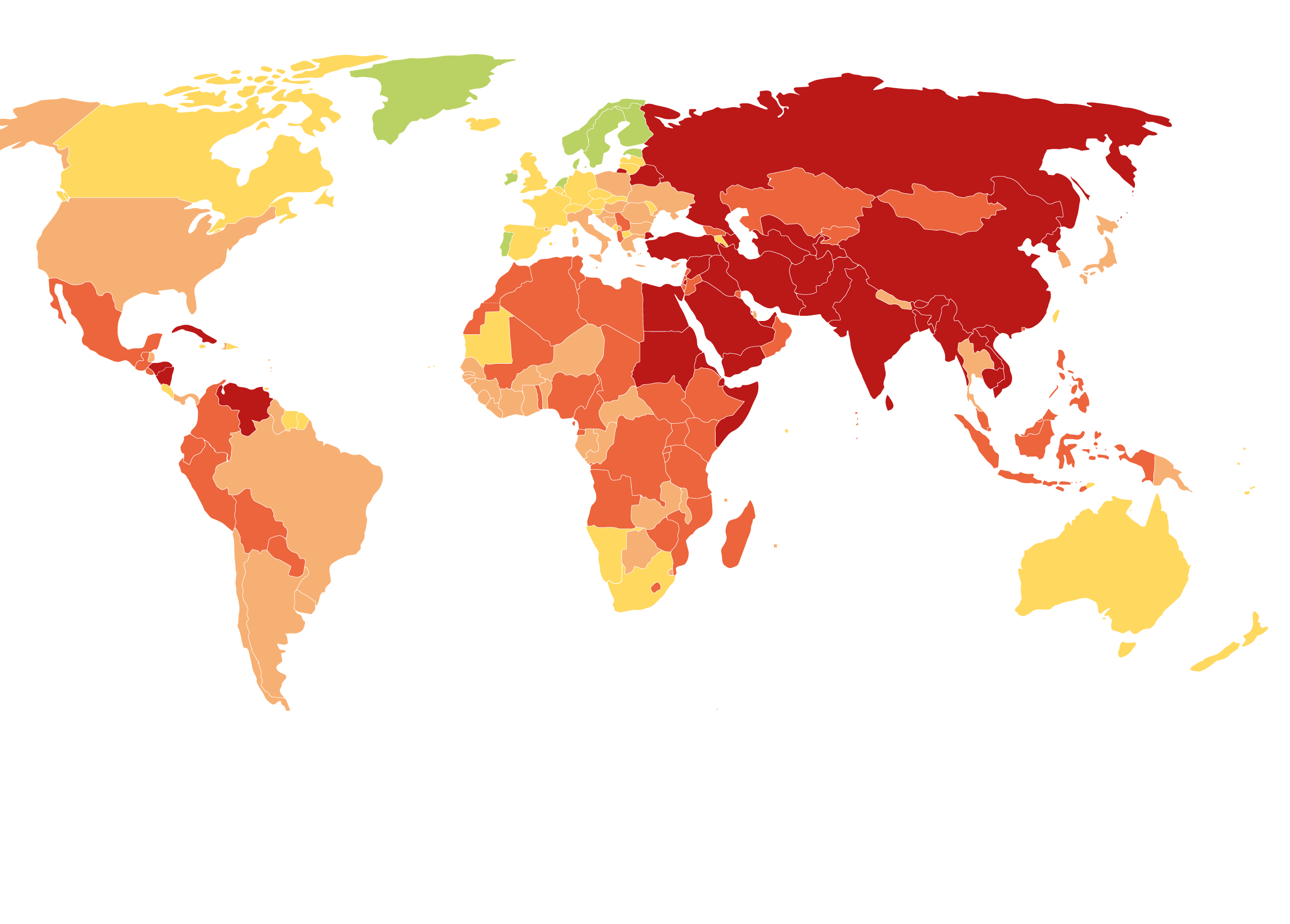2009 Annual Overwiew - Wars and disputed elections: The most dangerous stories for journalists
Organisation:
--------
Read the report
2009 in numbers :
76 journalists killed (60 in 2008)
33 journalists kidnapped
573 journalists arrested
1456 physically assaulted
570 media censored
157 journalists fled their countries
1 blogger died in prison
151 bloggers and cyber-dissidents arrested
61 physically assaulted
60 countries affected by online censorship
Two appalling events marked 2009: one was the largest ever massacre of journalists in a single day – a total of 30 killed – by the private militia of a governor in the southern Philippines and the other was an unprecedented wave of arrests and convictions of journalists and bloggers in Iran following President Mahmoud Ahmadinejad’s disputed reelection.
A total of around 160 journalists in all continents were forced to go into exile to escape prison or death, often in very dangerous circumstances. The Iranian press photographers crossing the Turkish border to escape arrest or the Somali radio journalists fleeing to neighbouring countries to avoid certain death had all reported essential news and information that some people would go to any lengths to suppress.
Wars and elections constituted the chief threat to journalists in 2009. It is becoming more and more risky to cover wars as journalists themselves are being targeted and face the possibility of being murdered or kidnapped. But it can turn out to be just as dangerous to do your job as a reporter at election time and can lead directly to prison or hospital. Violence before and after elections was particularly prevalent in 2009 in countries with poor democratic credentials.
No one should be surprised that, as bloggers and websites continue to flourish, censorship and repression have surged proportionately. There is almost no country nowadays that has entirely escaped this phenomenon. As soon as the Internet or new media (social networking, mobile phones etc) start to play a leading role in the spread of news and information, a serious clampdown follows. Bloggers are now watched as closely as journalists from the traditional media. Our major concern in 2009 has been the mass exodus of journalists from repressive countries such as Iran and Sri Lanka. The authorities in these countries have understood that by pushing journalists into exile, they can drastically reduce pluralism of ideas and the amount of criticism they attract. “This is a dangerous tendency and it must be very strongly condemned,” Reporters Without Borders secretary-general Jean- François Julliard said as this review of 2009 was released.
2009 in numbers :
76 journalists killed (60 in 2008)
33 journalists kidnapped
573 journalists arrested
1456 physically assaulted
570 media censored
157 journalists fled their countries
1 blogger died in prison
151 bloggers and cyber-dissidents arrested
61 physically assaulted
60 countries affected by online censorship
Two appalling events marked 2009: one was the largest ever massacre of journalists in a single day – a total of 30 killed – by the private militia of a governor in the southern Philippines and the other was an unprecedented wave of arrests and convictions of journalists and bloggers in Iran following President Mahmoud Ahmadinejad’s disputed reelection.
A total of around 160 journalists in all continents were forced to go into exile to escape prison or death, often in very dangerous circumstances. The Iranian press photographers crossing the Turkish border to escape arrest or the Somali radio journalists fleeing to neighbouring countries to avoid certain death had all reported essential news and information that some people would go to any lengths to suppress.
Wars and elections constituted the chief threat to journalists in 2009. It is becoming more and more risky to cover wars as journalists themselves are being targeted and face the possibility of being murdered or kidnapped. But it can turn out to be just as dangerous to do your job as a reporter at election time and can lead directly to prison or hospital. Violence before and after elections was particularly prevalent in 2009 in countries with poor democratic credentials.
No one should be surprised that, as bloggers and websites continue to flourish, censorship and repression have surged proportionately. There is almost no country nowadays that has entirely escaped this phenomenon. As soon as the Internet or new media (social networking, mobile phones etc) start to play a leading role in the spread of news and information, a serious clampdown follows. Bloggers are now watched as closely as journalists from the traditional media. Our major concern in 2009 has been the mass exodus of journalists from repressive countries such as Iran and Sri Lanka. The authorities in these countries have understood that by pushing journalists into exile, they can drastically reduce pluralism of ideas and the amount of criticism they attract. “This is a dangerous tendency and it must be very strongly condemned,” Reporters Without Borders secretary-general Jean- François Julliard said as this review of 2009 was released.
Published on
Updated on
25.01.2016




